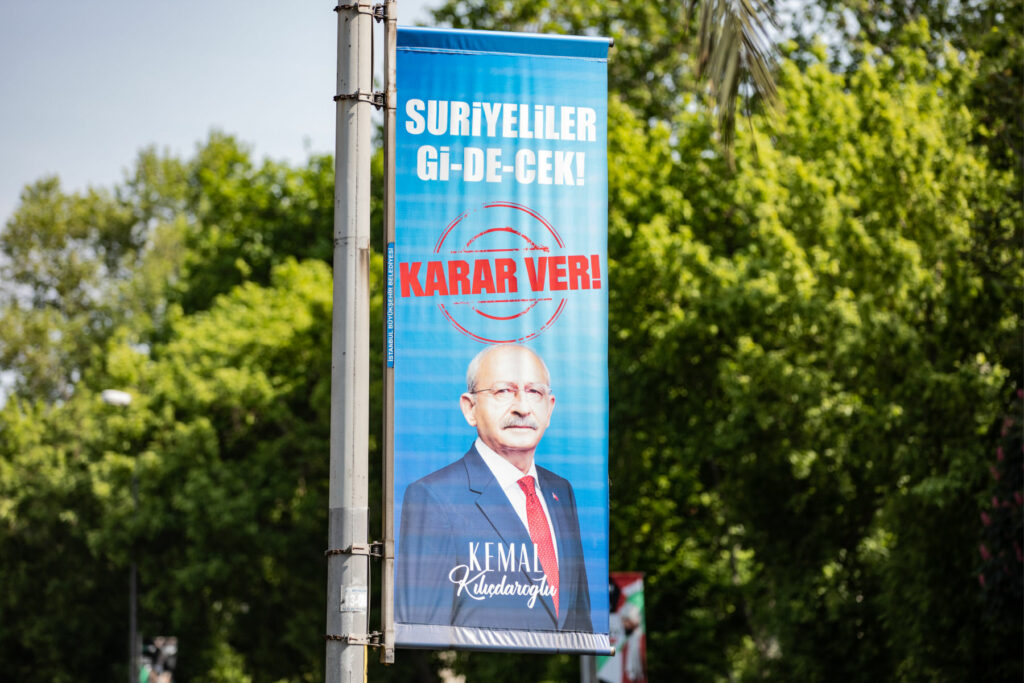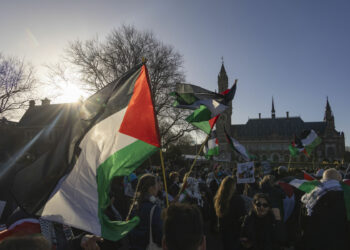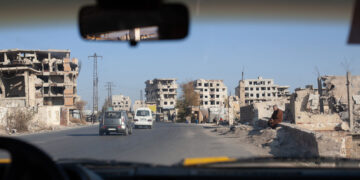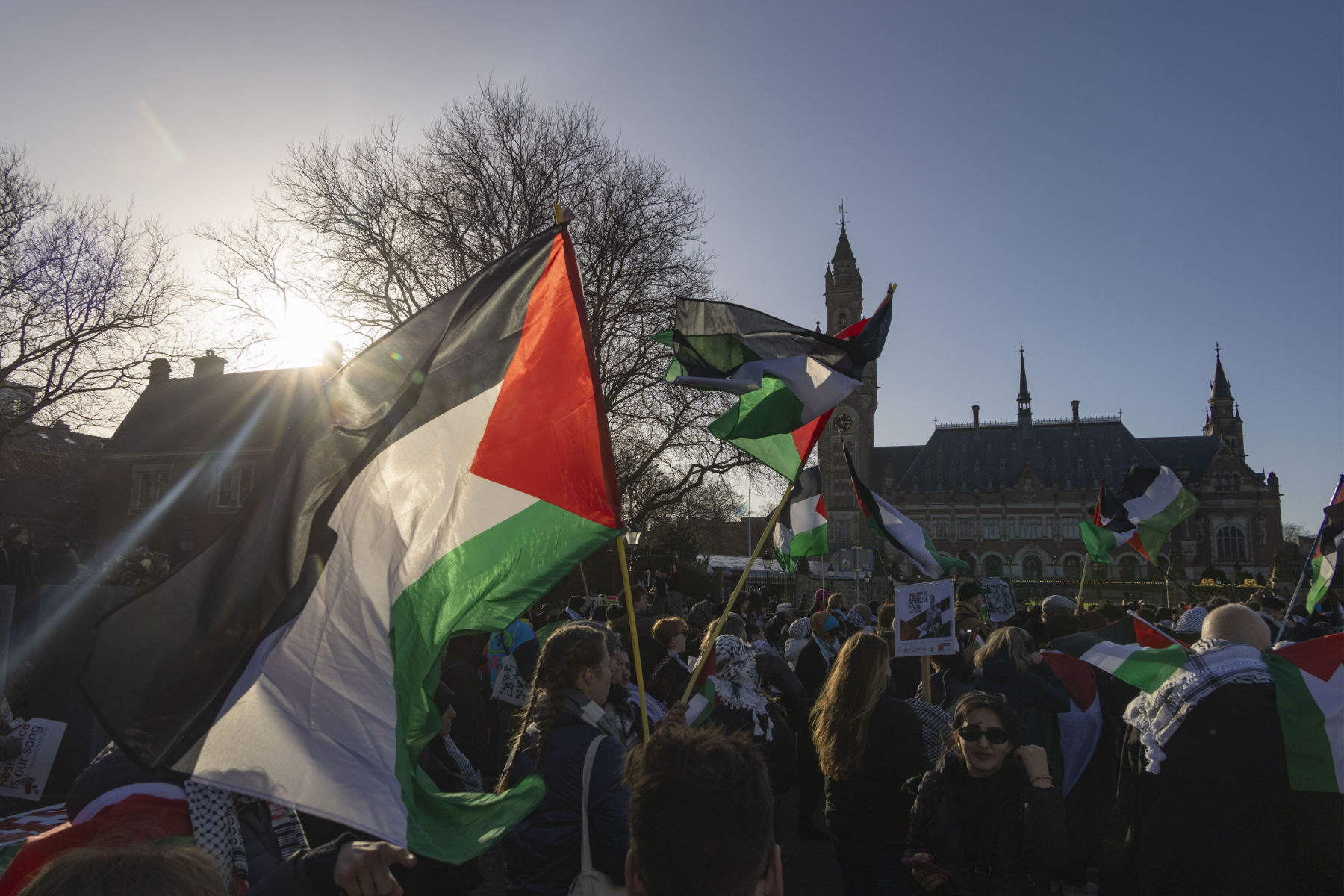Kelly Petillo is the programme coordinator for Middle East and North Africa at the European Council on Foreign Relations.
On June 15, international donors will gather in Brussels for the seventh year in a row to pledge billions of dollars in aid to Syrians and try to send a message to Syrians both inside and outside the country that their suffering has not been forgotten. Co-hosted by the European Union and the United Nations until two years ago, the Brussels Conference on the Future of Syria and the Region is now solely organized by the EU. The United States, despite being the largest donor to the international humanitarian response in Syria, does not lead on the conference, which is mainly a pledging event bringing together dozens of governments and nongovernmental organizations.
Syria's 12-year-old conflict is ossified. No political solution is in sight. Syria is devastated economically and territorially broken into several spheres of influence. Forced disappearances, killings and human rights violations continue under President Bashar al-Assad's regime. Even as regional powers welcome Assad back into their fold, it is clear that living conditions in Syria remain unbearable, with reconstruction nowhere in sight and Assad deeply entrenched in power despite ruling over a country in ruins.
And yet, there is more and more talk internationally, especially from governments that have hosted most of the millions of Syrian refugees, of those refugees somehow returning home, or even being deported and forcibly repatriated. The scope for available alternatives—namely resettlement and integration in another country—has never been lower since the start of the war, according to many experts and civil society organizations. The U.S. and European countries have practically erased any expectation around the possibility of legally resettling substantial numbers of Syrian refugees. In Turkey, Lebanon and Jordan, which together host more than 5.4 million Syrian refugees, there is a fierce and growing public backlash to their presence as illegal deportations have increased dramatically.
In Turkey, Lebanon and Jordan, which together host more than 5.4 million Syrian refugees, there is a fierce and growing public backlash to their presence and illegal deportations have increased dramatically.
- Kelly Petillo
According to the U.N. refugee agency, Lebanon hosts 805,326 Syrian refugees—although international NGOs estimate that the actual figure is nearly twice that, at 1.5 million, since the government stopped officially registering refugees with the U.N. in 2015. Meanwhile, Turkey hosts 3.4 million Syrians, and Jordan 660,605. These countries have shown enormous generosity, even when compared to the European response to the war in Ukraine. Lebanon and Jordan have the highest shares of refugees per capita in the world; refugees represent around 20 percent of Lebanon's total population and more than 10 percent of Jordan's. Turkey has taken in more refugees than any other country in the world since 2011; 5 percent of its population are now refugees, nine in ten of whom are Syrian. By comparison, Poland has taken approximately 1.5 million Ukrainian refugees, which represents 4 percent of its total population.
The Eighth Regional Survey on Syrian Refugees' Perceptions and Intentions on Return to Syria, recently published by UNHCR, confirms yet again—and in fact reinforces previous trends in this direction—that the majority of Syrians do not want to return home, whether in the next year (93.5 percent) or the next five years (51.3 percent). What's more, the number of Syrians wishing to go back one day is progressively decreasing each year, from 76 percent in 2018 to 43.5 percent in 2023.
But the needs of Syrian refugees in these host countries are at an all-time high. Domestic problems grimly intertwine with global shocks caused by the COVID-19 pandemic, climate change and the war in Ukraine. Lebanon's economy continues to spiral downwards, while its ongoing political stalemate, due to the inability to choose a president, further blocks any potential for elusive reforms. Turkey's infrastructure and economy were seriously damaged by February's devastating earthquakes, which hit areas with high populations of Syrian refugees, like Antakya and Gaziantep. Many Syrian refugees there who were directly affected by the earthquakes reported facing discrimination in the provision of aid and other humanitarian assistance, with the earthquake's aftermath "fueling a new wave of anti-Syrian hate sentiment, driven by political leaders seeking to exploit the disaster for political gain" in the run-up to last month's elections, according to the Syria Justice and Accountability Center. And in Jordan, rising unemployment, especially among young people, raises the potential to fuel more anti-refugee sentiment. According to the most recent Arab Barometer survey, Jordanians trust the government less and less, and strikes and protests are on the rise.

Demographic and identity concerns make the prolonged stay of Syrian refugees in these host countries in the region particularly contentious. The permanence of a majority-Sunni Syrian population would change the precarious balance of Lebanon's starkly sectarian political system and, to many Lebanese, add to their country's bitter history with Syria, marked most of all by Syria's long military occupation throughout and after the Lebanese civil war. In Turkey's recent presidential election campaign, Syrian refugees were targeted by both President Recep Tayyip Erdogan, who pledged to repatriate a million Syrian refugees if reelected, and opposition candidate Kemal Kilicdaroglu, who stoked ultranationalist fury by grossly inflating the number of refugees in the country and promising to kick out all refugees as president. As humanitarian funding dwindles, doubts arise over whether Jordan will continue hosting so many Syrian refugees. At a regional meeting hosted in Amman last month to discuss Syria, Arab ministers and diplomats discussed what they called "an Arab-led political path to reach a solution to the crisis," including refugee returns.
Despite the U.S., Germany and the EU being the top donors to the Syria response for years now, their support does little to take into account existing realities, such as the deteriorating situation for refugees in the region and grievances in host countries like Turkey and Lebanon. Much of the language around seeking some kind of political solution in Syria, at the Brussels Conference and similar international summits, is outdated, always reiterating key U.N. resolutions, such as Security Council Resolution 2254 that laid out a vague roadmap for a "political transition," and the need for continued humanitarian access. There has been no meaningful action toward the plans outlined in Resolution 2254 since it was passed in 2015, and the Assad regime, of course, has shown no interest in going along.
The statements released after each Brussels Conference reveal the shrinking political investment in Syria by Western countries that have until now sustained the humanitarian response. While they purport to outline not only the financial and humanitarian commitment of the international community toward the Syrian people, but also political elements aiming for a "solution to the Syria conflict," these statements have barely changed over the years, with only marginal edits added when necessary, such as language on COVID-19 and vaccines. When it comes to refugees, the EU for example continues to reiterate the need for "safe, voluntary and dignified" returns, even though they are essentially not possible for most refugees.
This stasis reflects the fact that the U.S., Europe and the rest of the international community are essentially stuck on Syria. Privately, officials from Europe and the U.S. lament that the new regional consensus around bringing Assad back into the Arab League leaves them with little options.
But the truth is that little was being done even before this new regional realignment around normalizing with Assad. International disengagement from Syria has been building for years, even before the war in Ukraine, and there is no evidence of cohesion within Europe and with the U.S. around how to react to Assad's diplomatic rehabilitation in the region.
The U.S. and Europe are often seen as over-relying on sanctions in their Syria policies, still hoping for regime change. Yet the Assad regime is reconsolidating its authority, and experts believe sanctions hurt Syrians more than Assad and his allies, especially stringent U.S. sanctions. The 2020 Caesar Syria Civilian Protection Act encompasses not just individuals among the Assad regime, but also any existing organizations that are seen as supporting the regime. This has caused major disruptions to the aid sector and prevents meaningful support to local civil society organizations.
But policymakers in the U.S. and the EU should yet look away from Syria. As long as they still retain some funding leverage, they should use it to make the presence of Syrian refugees in the region more manageable. Failure to do so will result in more Syrian refugees leaving and attempting to enter Europe through dangerous Mediterranean crossings, and in more instability in the Middle East.
The United States and Europe should continue to reiterate that the time is not right for refugee returns to Syria.
- Kelly Petillo
Rather than just pledge aid to Syrian refugees, the U.S. and Europe should together push for more inclusion of refugees in host countries in the region, including adequate access to legal protections and other rights, including the right to work, that would make Syrians more self-reliant. Regional host governments have largely prevented Syrians from securing legal documentation, education and training out of fear of prolonging their stay or even making it permanent. Together with Syrian experts and NGOs, the U.S. and Europe should clarify with their regional allies that everyone involved, including Syrians themselves, wants to see refugees return home, but that this shared long-term goal would be more effectively fulfilled by securing at least temporary protections and rights for refugees in host countries. Formalizing refugees' status and increasing their access to basic rights should be framed as essential requirements to ensure that Syrians can eventually support their own return home.
This language should be accompanied by an adequate offer of financial support, focusing on local—especially refugee-led—organizations in line with the framework known as "accountability to affected populations," which are closer to the beneficiaries and thus have a better sense of their needs and the challenges refugees face. It should also focus on helping local populations in countries like Turkey, Lebanon and Jordan, given the tremendous hardships communities there face socioeconomically and the resentment fueled by the sense that refugees are receiving help not also offered to them. Europe and the U.S. still need to resettle more Syrian refugees themselves, an important gesture of goodwill in return for the help that regional countries have provided in hosting so many Syrians for so long.
The U.S. and Europe should continue to reiterate that the time is not right for refugee returns to Syria—a message that can be better conveyed jointly. But in order to cater to those few Syrian refugees who decide to return, the U.S. and Europe should at the same time push for more monitoring of conditions inside Syria and of the fate of those Syrians who indeed go back. Forcibly deporting and pressuring Syrian refugees to leave have already resulted in re-returns to countries like Lebanon and in attempts to reach third countries, most of all in Europe. U.S. and European officials should speak out firmly and in unison against illegal deportations and pressure tactics that have been taking place in Lebanon, Turkey and sometimes even in Jordan.
This month's Syrian aid conference is an opportunity for countries and donors to meaningfully address the dire realities for Syrian refugees in the region and safeguard their rights and dignity. As Syrian refugees face growing risks of deportation and hostility, the Brussels Conference can ensure that they are not forgotten.






































